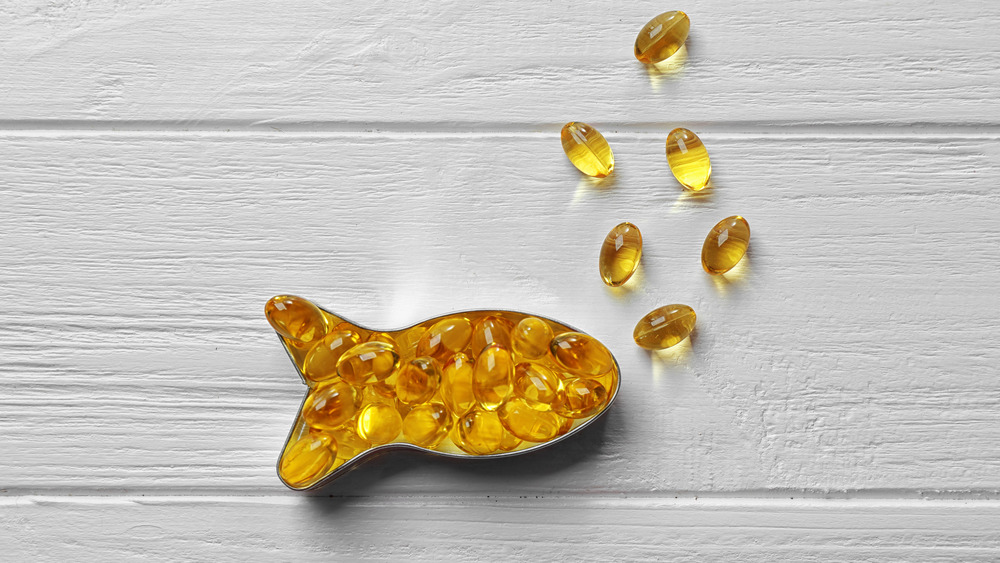When You Take Too Much Fish Oil, This Is What Happens
Omega 3 is an essential fat necessary for optimal health, which we must get from food, or other sources, as the body does not produce it naturally (via Harvard Health Publishing). The health benefits of a diet rich in omega-3 fatty acids include a reduced risk of heart disease and stroke, decreasing inflammation, and improving auto-immune conditions such as lupus and rheumatoid arthritis. With the increasing popularity of omega-3, and the hype of its benefits, every year Americans are spending an estimated 1.2 billion dollars on fish oil supplements (via Washington Post).
Many science-backed studies prove the health advantages of an omega-3 rich diet, as this is a thoroughly-researched fatty acid (via Healthline). You can, however, overdo it on your supplement intake, causing unwanted, and even adverse effects. According to Healthline, those taking high doses of a fish oil supplement may experience some of the more common side effects like diarrhea or acid reflux, which is sometimes referred to as fish burps.
More serious side effects
You may be advised to stop taking a fish oil supplement prior to a surgery or a procedure, due to its potential risk for increased bleeding (per Harvard Health Publishing). One study suggests children are at a higher risk for nose and gum bleeding with excess fish oil intake, while a separate study shows a decrease in blood clotting in healthy adults.
If you are predisposed to low blood pressure, or take blood pressure medication, too much fish oil can have a negative impact as it has been shown to lower blood pressure (via Mayo Clinic). Low blood pressure symptoms include fatigue, inability to focus, blurred vision, dizziness, and even fainting (via American Heart Association).
Some research suggests that because taking too much fish oil might reduce blood's ability to clot, it may lead to a hemorrhagic stroke, which is a bleeding in the brain. However, this research is limited and requires further study. You may also experience vitamin A toxicity from certain fish oil supplements, such as cod liver oil, which contains nearly 270 percent of your daily recommended value in just one teaspoon (via Nutrition Data).
The bottom line is that fish oil does have a place in your diet, whether through supplements or food, but overdoing it has the potential to present unwanted effects. Working with a nutritionist or doctor is the best way to ensure you're getting just the right amount of omega-3 in your diet.


